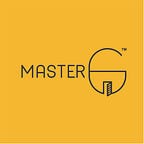Did I know I should have worn a light cotton garment rather than a thick jean jacket while landing for the first time in Delhi in the midst of July? Neither did I know it would be boiling hot nor did I understand the meaning of ‘koi pharak nai padtha’. When I got selected for the Young India Fellowship (YIF), everyone echoed the concern of distance between Kerala and Haryana. But I chose to go far to get a liberal education, something that I have always longed for, because I was disillusioned with the conventional roads that a graduate would opt for. Uncharted pathways mostly invoke anxiety rather than excitement for me. I didn’t know how to speak Hindi although I understood part of it, had no friends or family up in the north and the climate, food and culture were extremely different from the south. But all these did not matter while I took a deep breath, picked up my luggage, handed over the boarding pass, and flew alone to experiencing how the choice I had made would unfold.
I gradually found it easy to mumble broken Hindi to autowalas, learnt to bargain with the sellers at Karol Bagh, took to having golgappas for lunch and almost got hit while cycling around Patel Chowk. YIF had a strictly hectic schedule which gave us the luxury of a fine Sunday being the only time we could take the 8 am shuttle, do assignments along the way and then roam in and around Delhi till 10 at night to then catch the last shuttle back to campus. Other than Sundays, the Experiential Learning Module (ELM) was one way I got to see other parts of Delhi and listen to influential stories. Moreover, the ELM experience was one part of YIF that helped me learn and get inspired, the one part that affirmed the beauty of the choice I made to take up the fellowship far away from home.
In Kerala, there are numerous boutiques and women tailors to whom my mother gives dresses for tailoring and men tailors who would help us with our uniforms. Growing up and even now, I never saw gender disparity in the design and tailoring realm in my hometown. It was only when we began working with the MasterG initiative as part of ELM, I realised, during all those travels I made to Delhi, I never saw women tailors but only tailoring shops owned and frequented by men. It came as a slight shock to me because I wondered how these structures would slowly ingrain into children, the distorted reality of women confined to one’s room or veiled beneath societal norms in the 21st century. This disillusionment drove me to work with MasterG founded by Gayatri Jolly and observe the immense work that the team is doing to recalibrate discourses and social structures to rightly fill in the blanks toward a better community-oriented workplace.
The girls were referred to as makers at MasterG. What a beautiful concept, I thought. It resembled the way the Kerala government addresses the migrant workers as guest-workers. A word had the power to change the way we perceive certain notions. MasterG as an organization makes its way through the institutional norms throned by men and unfolds its own journey toward opening doorways for girls to make their own choices and become the makers and designers they dreamt to be.
The first day of ELM fieldwork happened the day of orientation at the Tigri Centre, which is run in partnership with Adahrshila Trust and Fena Foundation. Monika ma’am handed over to me a camera. As nervous as I was, when I began shooting, I observed the faces of the girls who embodied courage and resolve. As one of the graduated girls spoke, everyone in the audience, including me were energized. In that fine moment, I could see calm happiness in the mothers and teachers, carefree laughter of the makers, and the confident stride of the speakers; I tried to absorb them all with the camera. And then on, whenever we went out to cover stories, talk to these makers, we came back to campus tired but rejuvenated with inspiration to hold onto in a chaotic world, a hope that one could contribute the little one can and affect changes to a better community.
The makers had to go through rough phases and most of them travelled hours a day to actualize their dreams. People talked behind their back, glanced while they danced their way back home, retorted against their dreams, but none mattered to the girls who had the resolve and motivation to build their own Marzi ki Dukaan, their own ways to realising dreams. Koi pharak nahi padtha, they would say. Now, these are the four words in Hindi I know how to rightly pronounce and speak with confidence.
